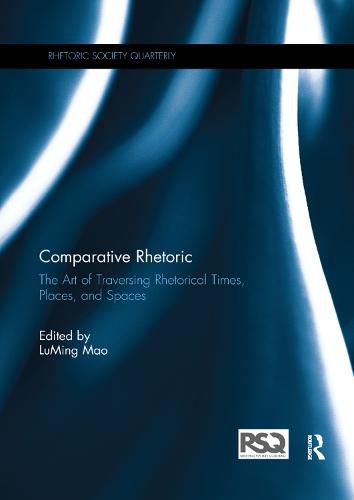Readings Newsletter
Become a Readings Member to make your shopping experience even easier.
Sign in or sign up for free!
You’re not far away from qualifying for FREE standard shipping within Australia
You’ve qualified for FREE standard shipping within Australia
The cart is loading…






Rhetoric and Communication scholars have recently made notable advances in discovering and/or recovering rhetorical practices of various under-represented and under-recognized cultures. Building on this growing body of scholarship, this book initiates a new line of interdisciplinary inquiry. By turning attention to how histories of cross-border and cross-cultural contacts mobilize different conditions of possibility and engagement, this collection of essays by established and emergent scholars develops a range of new approaches to comparative rhetorical studies in our age of globalization. Using Chinese, Egyptian, Indian, and Japanese rhetorical practices as examples, these essays both challenge current assumptions and methodological perspectives about comparative rhetoric and illustrate how to navigate between the native’s point of view and a critical vantage point outside the native tradition and between the meanings of the past and the exigencies of the present. To promote critical reflection on the challenges, opportunities, and implications of traversing rhetorical times, places, and spaces, the collection concludes with a response essay that takes the reader on a Tao Trek, revisiting some of the earliest Eastern and Western rhetorical encounters and further illuminating the complexities of comparative engagement in the present moment.
This book was originally published as a special issue of Rhetoric Society Quarterly.
$9.00 standard shipping within Australia
FREE standard shipping within Australia for orders over $100.00
Express & International shipping calculated at checkout
Rhetoric and Communication scholars have recently made notable advances in discovering and/or recovering rhetorical practices of various under-represented and under-recognized cultures. Building on this growing body of scholarship, this book initiates a new line of interdisciplinary inquiry. By turning attention to how histories of cross-border and cross-cultural contacts mobilize different conditions of possibility and engagement, this collection of essays by established and emergent scholars develops a range of new approaches to comparative rhetorical studies in our age of globalization. Using Chinese, Egyptian, Indian, and Japanese rhetorical practices as examples, these essays both challenge current assumptions and methodological perspectives about comparative rhetoric and illustrate how to navigate between the native’s point of view and a critical vantage point outside the native tradition and between the meanings of the past and the exigencies of the present. To promote critical reflection on the challenges, opportunities, and implications of traversing rhetorical times, places, and spaces, the collection concludes with a response essay that takes the reader on a Tao Trek, revisiting some of the earliest Eastern and Western rhetorical encounters and further illuminating the complexities of comparative engagement in the present moment.
This book was originally published as a special issue of Rhetoric Society Quarterly.